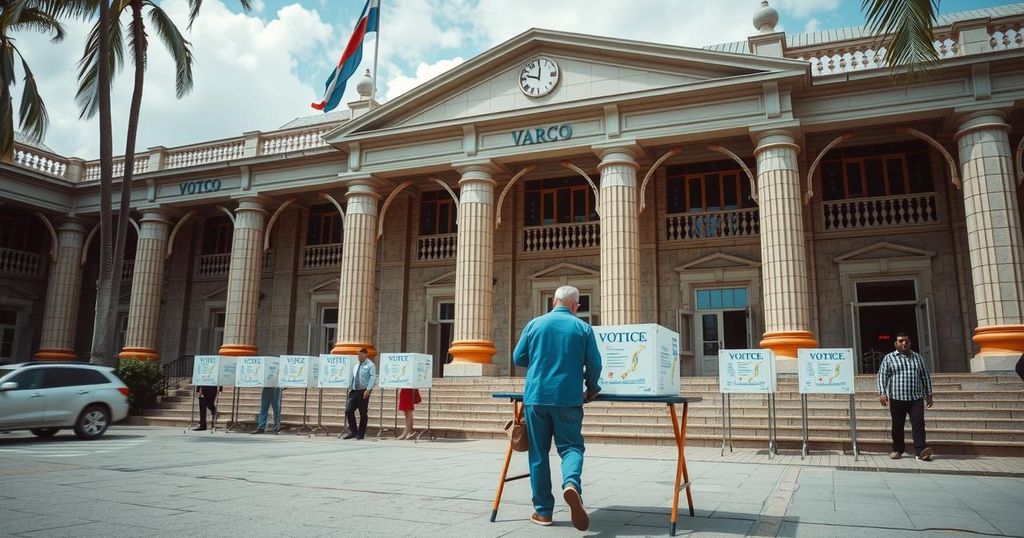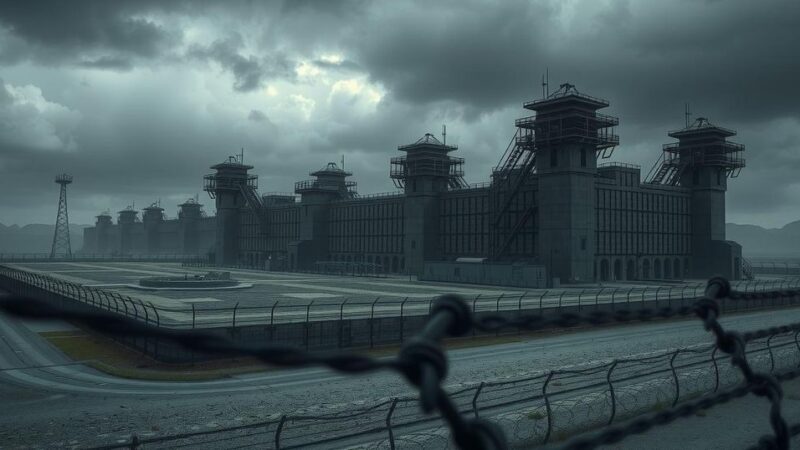Comoros voters are electing a new parliament as President Azali Assoumani faces opposition allegations of irregularities during his recent reelection. Approximately 338,000 registered voters are participating, with a spectrum of opposition responses to the electoral process. The results of this significant election are expected by Friday.
Voters in the Comoros are participating in elections for the country’s 33-seat parliament, marking a significant event a year after President Azali Assoumani’s reelection, which faced accusations of extensive irregularities from opposition parties. Nevertheless, officials from the ruling party firmly reject these claims. Approximately 338,000 citizens are expected to cast their votes, as polling stations opened early on Sunday. The last parliamentary elections took place in January 2020, and the Supreme Court has approved almost 100 candidates for this election.
Assoumani has been a prominent figure in Comoros politics since 1999 after seizing power through a coup and subsequently winning three elections. His opponents criticize his authoritarian governance and express concern regarding his intentions to groom his eldest son, Nour El-Fath, for leadership after his term concludes in 2029. In a significant move, Assoumani has granted his son substantial authority, allowing him to oversee all governmental operations starting in 2024.
While some opposition factions, including the Juwa party led by former President Ahmed Abdallah Sambi, who is currently imprisoned, have advocated for a boycott of the elections, others have dismissed this appeal. Hamidou Karihila, a candidate with the opposition party Hope of the Comoros, emphasized the impact of participation, stating that engaging in the election process would highlight the regime’s deficiencies and hasten its decline. The final results of the elections are anticipated by Friday.
The Comoros is an archipelago located in the Indian Ocean, with a complex political landscape influenced by historical coups and claims of electoral malfeasance. President Azali Assoumani, who has governed the country since 1999, faces increasing scrutiny over allegations of authoritarianism and nepotism, particularly concerning his son’s ascendancy to power. The political opposition is fragmented, with some parties advocating electoral boycotts while others accept the conditions to challenge the current regime, indicating a varied response to the ongoing political climate.
In conclusion, the parliamentary elections in Comoros represent a crucial moment for the nation’s democratic processes amidst allegations of misconduct and authoritarian rule by President Assoumani. With the opposition divided on participation, the outcome may have significant implications for the future leadership and political trajectory of the archipelago. The anticipated results by the end of the week will provide further clarity on the electorate’s stance on the current administration and its governance.
Original Source: www.areanews.com.au






